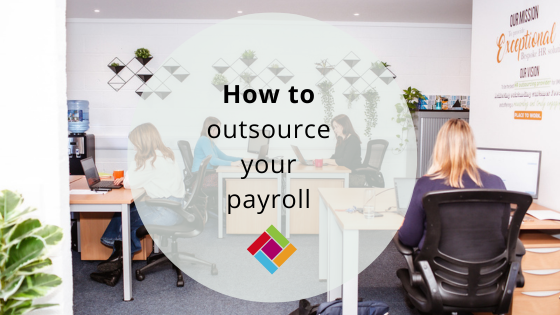
As a small business owner, understanding the ins and outs of payroll outsourcing can pave the way for greater efficiency, accuracy, and overall success. In this guide to how to outsource your payroll, we’ll delve into what payroll outsourcing is, why you should consider it, what to look for in a provider, essential questions to ask, common pitfalls to avoid, and the various types of payroll providers available to you.
What is payroll outsourcing?
Outsourcing payroll involves delegating the responsibility of managing employee payrolls to an external provider. Instead of this complex task being handled in-house, a provider with expertise, technology, and resources takes over to calculate wages, deductions, taxes, and other payroll-related components.
Why outsource payroll?
- Save time: Payroll process requires a significant amount of time and effort. Outsourcing this task will free up internal staff to focus on other core business activities.
- Taps into expertise and reduces the risk of errors: Payroll providers are experts in complex tax regulations and employment law. This means there won’t be any costly mistakes or issues of non-compliance. This also means that employees will be paid accurately and on time.
- Cost-effective: Maintaining and running an in-house payroll department can be expensive. Outsourcing will eliminate the expenses associated with staff training, software and technology updates.
- Ensures data is secure: reputable providers will have stringent data security measures to safeguard sensitive employee information from potential breaches.
- It’s scalable: As your business grows, so do the complexities of payroll. By outsourcing, it makes it easier to deal with larger numbers of employees.
What to look for in a payroll provider
When researching and shortlisting a potential outsourced payroll provider, it’s important to keep the following in mind:
- Reputation and experience: Examine and research the provider’s track record and industry experience to ensure they have a proven history of delivering reliable services.
- Expertise in compliance: You will need to verify that the provider is up-to-date with the latest UK tax regulations and employment laws, ensuring your business remains compliant.
- Understand the technology they use: Find out which software and systems they use and assess it to ensure they can accommodate your needs and facilitate easy integration.
- Look at the level of customer support offered: Do they have a responsive and knowledgeable customer support team? This is essential if you’ve got any concerns or questions.
- Can they customise the service to your business? Just as each business is unique, each business has unique payroll requirements. Look for a provider that can bespoke their services to your specific needs.
- Understand their data security protocols: They will need to brief you on their security protocols and measures to safeguard sensitive employee data from potential breaches.
Key questions to ask an outsourced payroll provider
Here are a few questions to help you when researching potential providers:
- What is your experience with businesses of our size and industry? Have you worked with similar businesses?
- How do you comply with changing UK payroll regulations?
- Can you provide references from current clients? Do you have testimonials or case studies available?
- What security measures are in place to protect our data?
- How often will we receive payroll reports and in what format?
- What is the process for handling discrepancies or errors in pay?
- What level of customisation can you offer to suit our business’s unique needs?
- How does your customer service work? Will we be able to speak to a representative easily if we have any issues?
Pitfalls to avoid
There are a few pitfalls to avoid when considering outsourcing your payroll.
- Not doing enough research and rushing into a partnership without the full checks can lead to costly mistakes further down the line.
- Neglecting compliance: It goes without saying that it’s essential to comply with tax and employment laws in order to avoid penalties and legal consequences.
- Making a decision based purely on cost: whilst it can be an important factor, it’s essential the final decision is based on all of the above and not just who is the cheapest provider.
- Misunderstanding responsibilities: It’s essential to clarify who is responsible for what.
- Inadequate security measures: overlooking the data security element could expose sensitive employee information to cyber threats.
Types of outsourced payroll providers
The marketplace is crowded, here are the main types of payroll providers:
- Full-service payroll companies: typically handle all aspects of payroll, from calculations to tax filings, offering comprehensive solutions.
- Bureau services: These usually assist with processing payroll data and generating payslips but might leave tax filing responsibilities to the business.
- Software platforms: Some businesses may prefer to use payroll software that provides tools and guidance for managing payroll in-house.
- Professional services organisations: these are consultancies that offer not only payroll services but also other HR-related functions, making them suitable for businesses seeking a holistic solution, such as Bespoke HR.
Outsourcing your payroll can be a strategic move to enhance operational efficiency, accuracy, and compliance. With the right provider by your side, you can focus on growing your business while ensuring your employees are paid accurately and on time.
Speak to us about outsourcing your payroll or read our case study on how we helped Workrate with its payroll.